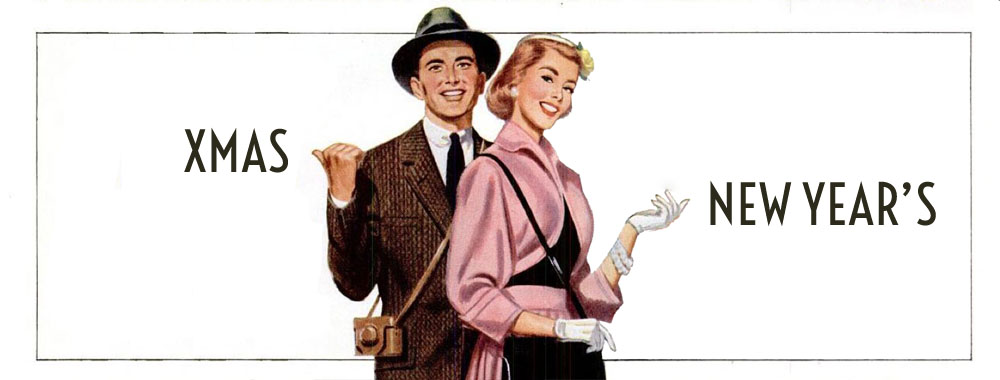 Ah, the sweet, familiar melancholy of the end of Christmas. It’s late at night, and the guests have just left, so you’ll forgive me if I’ve nothing much here to say. I should take the week off, and sit down and read my comic books.
Ah, the sweet, familiar melancholy of the end of Christmas. It’s late at night, and the guests have just left, so you’ll forgive me if I’ve nothing much here to say. I should take the week off, and sit down and read my comic books.
A grown man, and I get comic books. One of them was a compilation of Carl Barks Uncle Scrooge stories, which I remember well from childhood. I never bought them, but my Grandma must have picked them up in town for the grandchildren to read when they came over. (I should note that two of the grandchildren lived a few yards away in her son’s house; when Myron got married he built a house on some vacant land, away from the barn and sheds, and raised his family there) I remember a marvelous story about Donald and Unca Scrooge both buying a steam shovel for the triplets, and having an epic fight, Mecha-style, in the middle of Duckburg. There was always something different about a Barks story; they were real stories, and they didn’t talk down to you.
The introduction to the book is by George Lucas, and it is singularly witless.
“The stores are also very cinematic. They have a clear beginning, middle, nd ed, and operate in scenes, unlike many comic strips and books.”
Really? Is that all?
Barks’ stories don’t just move from panel to panel, but flow in sequences, - sometimes several pages long - that lead to new sequences.
Then he gets the characters all wrong:
“Donald Duck and Huey, Dewey, and Louie are all other-oriented, generous, and charitable. While Scrooge is an individualistic miser, the others participate more in the family relationship.”
Donald Duck may be many things, but other-oriented, generous, and charitable are not the first things that come to mind. Peevish, easily riled, prone to belligerence, easy to slight, sentimental. The triplets could be quite mischievous.
More Lucas insights:
“The lure of material things is clearly a main theme throughout all of the Scrooge stories.”
And this gem:
“Sociologists have studied comics s reflections of the society of their times. In addition to the artistic pleasure given by comic stories and drawings such as Carl Barks’s. comic art has something to say about the culture that produces it.”
George Lucas is a deep thinker. He concludes:
“What I think i enjoy most about uncle Scrooge is that he is so American in his attitude. These comics are one of the few things you can point to that say: Like it or not, this is what America is. And it is for just this reason that they are a priceless part of our literary heritage.”
Good. Lord. While it’s true that Scrooge made his fortune during the Alaska gold rush, the qualities of thrift and industriousness and flinty resolve were also associated with the Scots, hence the “Mc” in “McDuck.” His forebears were Scottish.
There is, ho wever, a nifty little five page story that demonstrates a qu ality you find in a wide-open capitalist society where initiative and savvy are rewarded: Scrooge learns, thanks to a gag newspaper Donald made and left for him to see - you know, generous, charitable Donald - that money is worthless, and fish are the new medium of exchange. Dumbstruck, Scrooge reels for a panel or two, then realizes that since his fortune has been wiped out he will have to make another. Through a series of deals, he amasses an enormous amount of fish. But they do not bring the same pleasure as hard currency. Being rich in a fish-based economic system does not bring the same aesthetic pleasures as coins and greenbacks, and since he decides it is better to be happy than to be rich, Scrooge gives his entire fortune to Donald.
You know, Scrooge, the individualistic miser who is not other-oriented.

